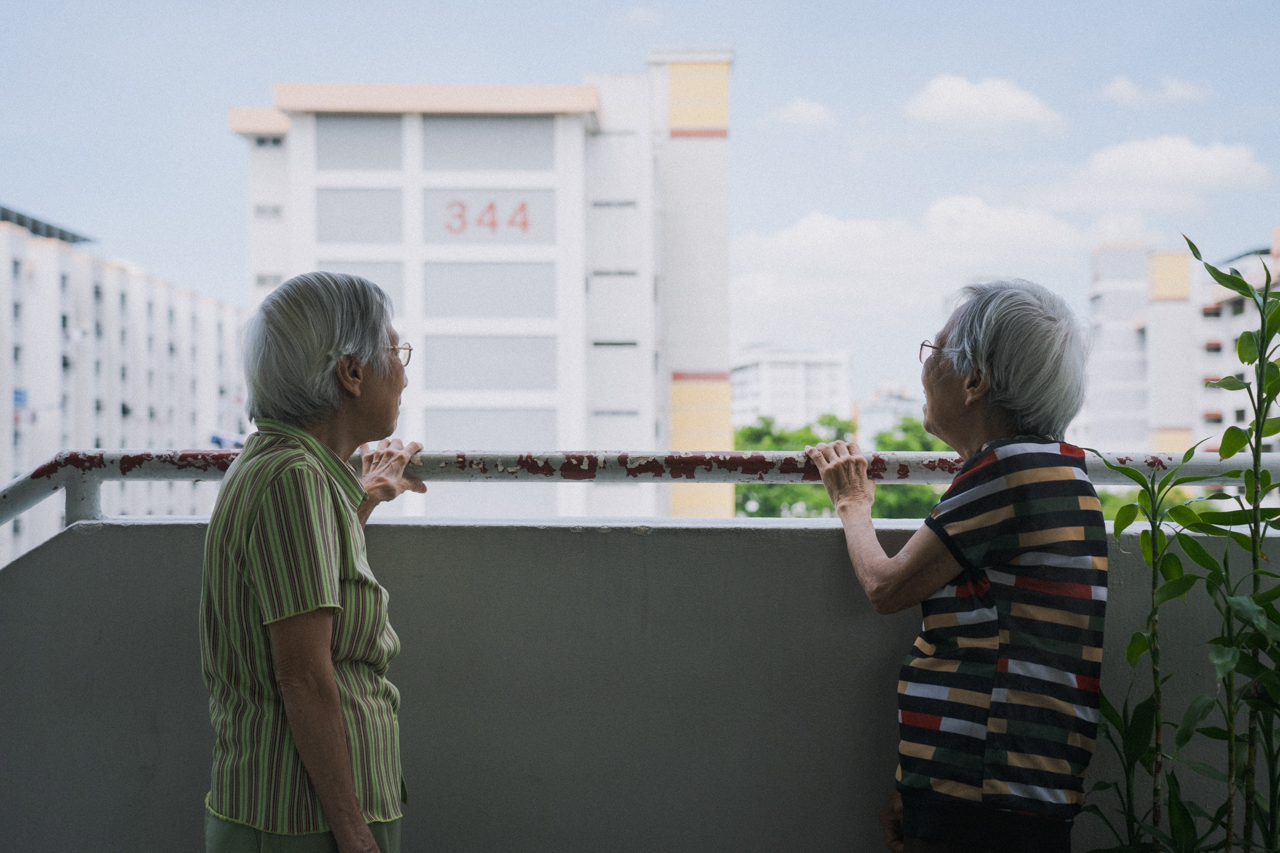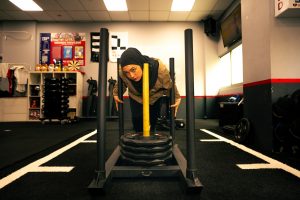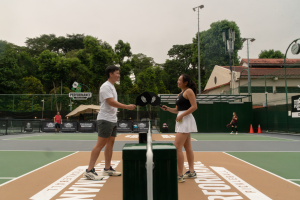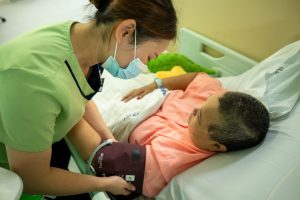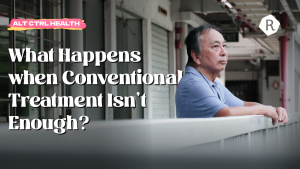Photography by Zachary Tang.
60-year-old Lilian Lee is jaded. She should be rocking the boardroom for a few more years and living her best life, but there she was on a sunny weekday afternoon, pottering around her two-bedroom apartment, which was equipped with four types of air purifiers and an oxygen tank.
“This is all for my mother,” said the former business manager of a property firm, gesturing to the blinking, humming hospital-grade machines. “I was forced to retire from my job two years ago to look after her.”
A photo of the hand-holding mother-and-daughter pair beaming for the camera is propped up against the wall. They’ve always been close, until a stroke in 2015 left her once exuberant mother half paralysed.
“This picture was taken two months before everything changed,” said Lilian.
Madam Lee is now bedridden and unconscious after suffering several more strokes. She needs round-the-clock care, which her own single, ageing daughter provides with the help of a full-time maid.
“I have three other siblings, but none of them have extended their help. They want nothing to do with us,” she explained, adding that she has spent S$400,000 on medical bills so far, and is currently living on her fast depleting savings and investments.
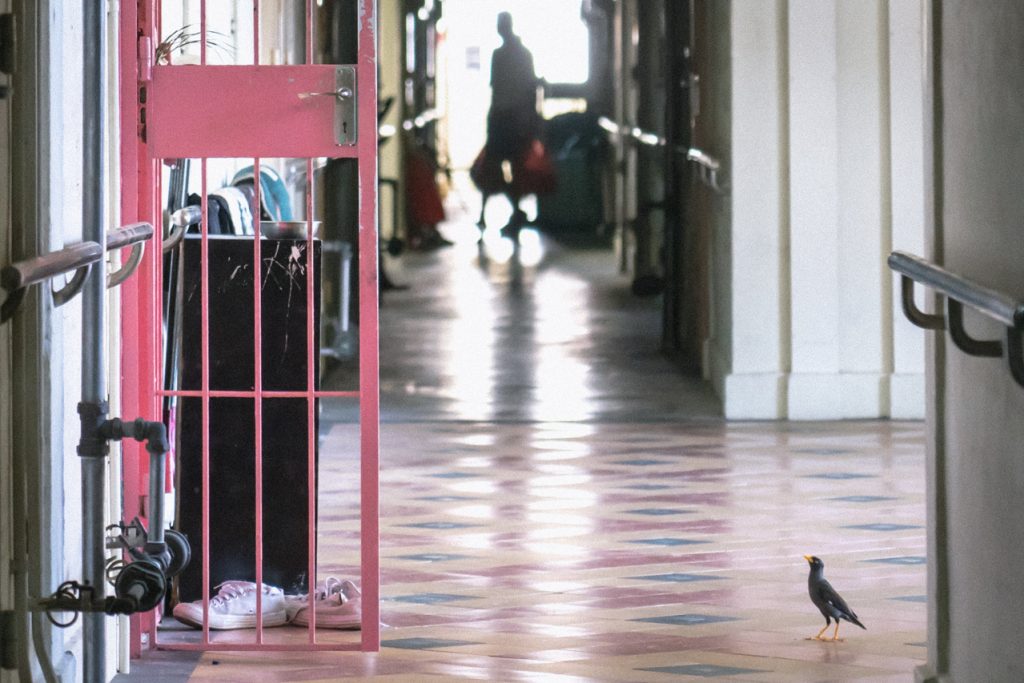
There are plenty of conversations revolving around women and ageing these days, but they mostly leave out stories like Lilian’s, which is but a preview of the challenges our country will increasingly face. As birth rates continue declining, the proportion of Singaporeans over the age of 65 years is projected to more than triple, from 9% to 29% between 2010 and 2030.
Earlier this year, the government announced that it will be raising GST—”sooner rather than later”—as annual spending on healthcare has nearly tripled from $3.9 billion to $11.3 billion in 2011 and 2019 respectively, and is set to grow as more and more Singaporeans get older.
According to a UN report, while women age 50 and over make up a significant proportion of the world’s population, this group also tends to be poorer, more socially isolated and sicker compared to their male counterparts due to a lifetime of discrimination. In China, for instance, poverty rates among older women are about four times higher than among older men.
These gender inequalities may be more pronounced in low-income countries, but Shailey Hingorani, head of Research and Advocacy at AWARE, said that women here have their own share of problems.
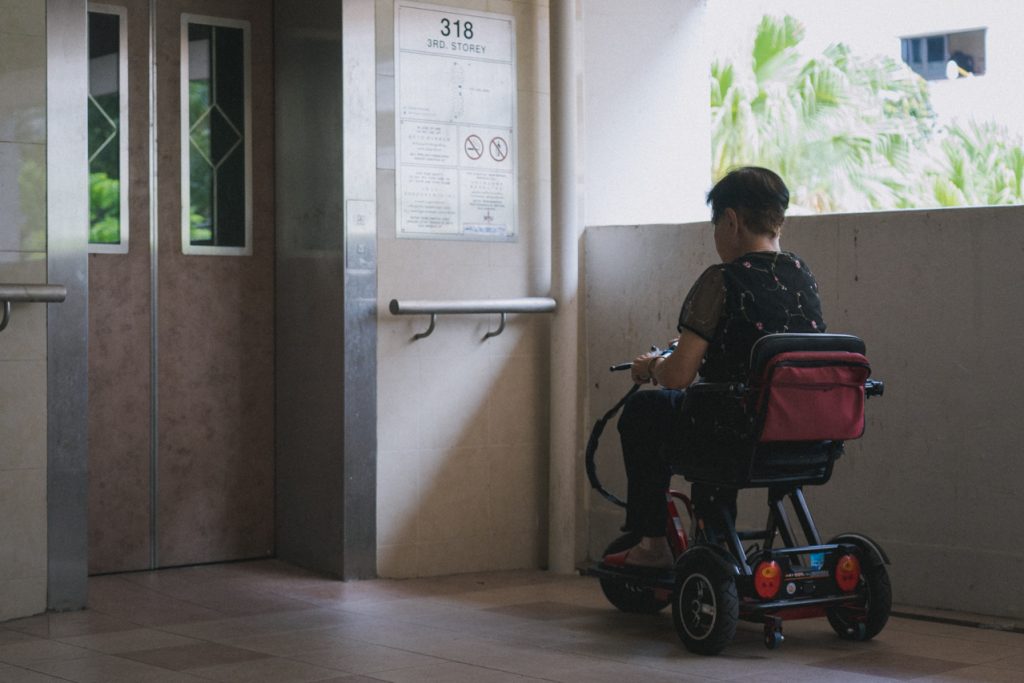
“A 2018 report by Mercer and Tsao Foundation stated that the estimated gender retirement savings gap in Singapore is 17%. This is worrying because women tend to live longer than men, and spend more years in disability,” she added, underscoring that women are already paying higher CareShield premiums than men, which some view as a sort of penalty for living longer.
On top of this, AWARE also published a report entitled Make Care Count in 2019. The report found that “caregiving disproportionately affects women, due to persisting unequal gender norms that frame care as female work.”
“Further, the family caregiving burden on each individual is expected to grow considerably in future. With a smaller or non-existent next generation of family caregivers to depend on, the caregivers of today will have less family support to age in place, in addition to having their retirement adequacy reduced because they supported their relatives to age in place earlier,” said Shailey.
After spending their most productive years fulfilling familial responsibilities and caring for others, many of these same women end up poorer or mired in poverty because of policies that neglect to recognise their contributions.
“I haven’t expected everything to turn out the way it did,” sighed Lilian. “Thankfully, I made some financially prudent choices when I was younger.”
Lilian is, however, one of the more fortunate ones.
Having exhausted her CPF and Medisave savings, 79-year-old widow Aisyah Salam now relies on the government to pay her daily expenses. Aisyah—who received no formal education unlike her brothers—is semi-illiterate and used to earn S$100 a month as a maid.
She now lives in a one-bedroom rental HDB flat with her 67-year-old sister, who has schizophrenia and is currently on medication.
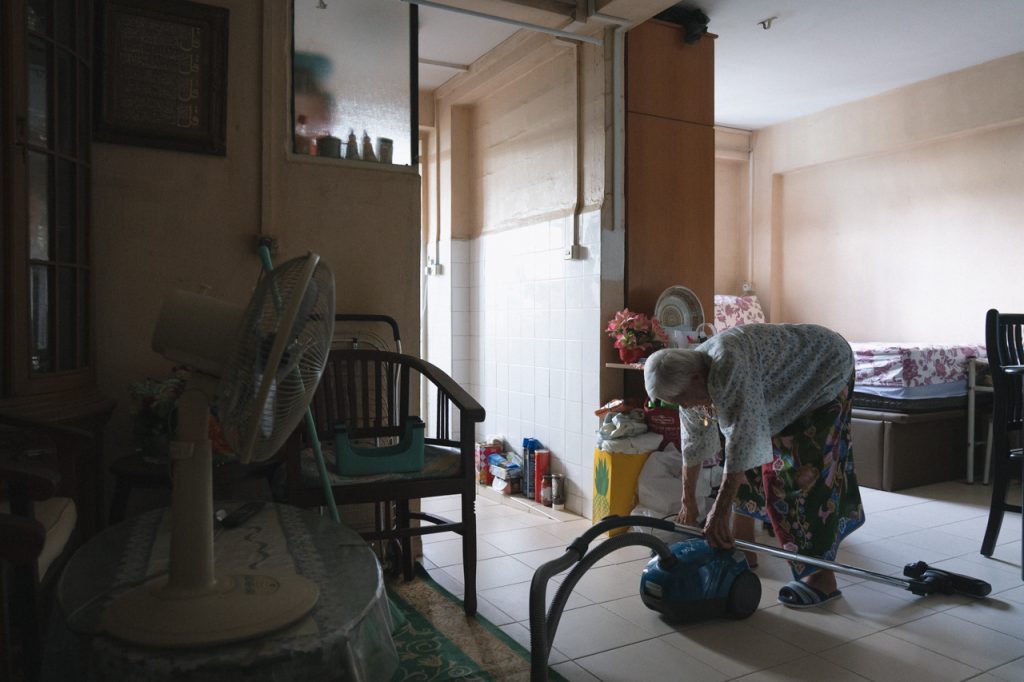
“Sekarang, saya jadi dia punya ayah, emak, kakak dan pembantu pulak,” she said (“I’ve become her dad, mom, sister, and maid.”).
Their bedroom doubles up as a dining room and living room, but no one drops by to visit except for the occasional good Samaritan or social worker bearing food.
“My kids are busy,” she said. “But my dad has always told me, ‘Rely on yourself and don’t bother anyone. Never knock on people’s door for donation or help.’ I think it’s good advice.”
A walk around the rental HDB estate in Ang Mo Kio revealed how these women’s stories are neither unique nor surprising. There are plenty of women just like them, all living—no, surviving—in their shoebox homes with their ward(s). Stuck in a sort of eternal purgatory behind metal grilles, their small, wizened frames—of somebody’s mother, daughter, wife or sister—sit hunched in front of the glowing television when they’re not busy tending to others.
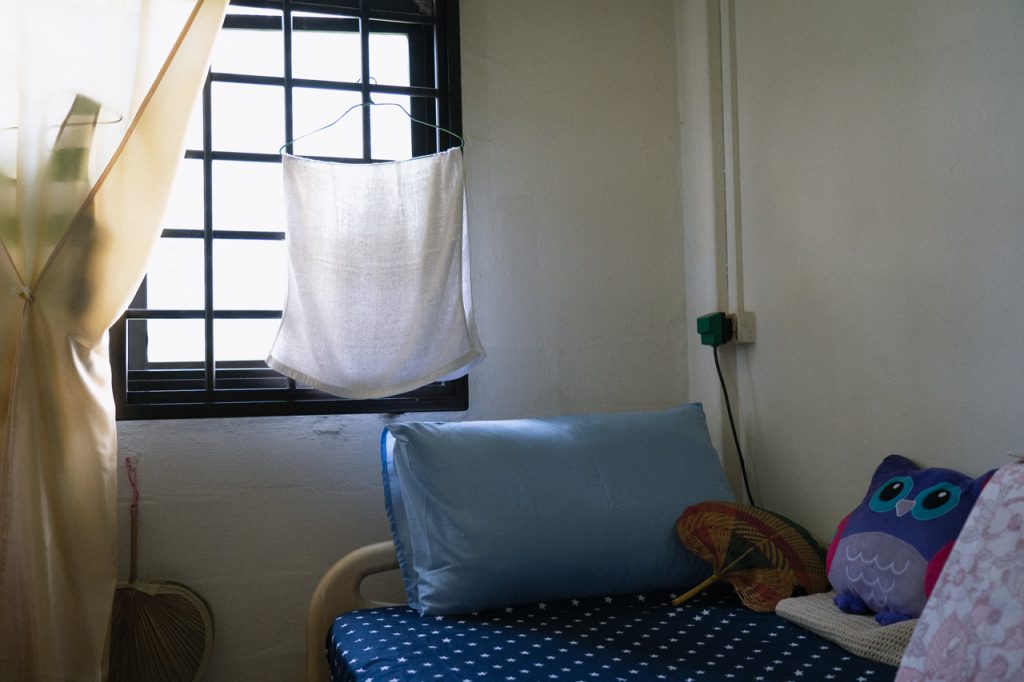
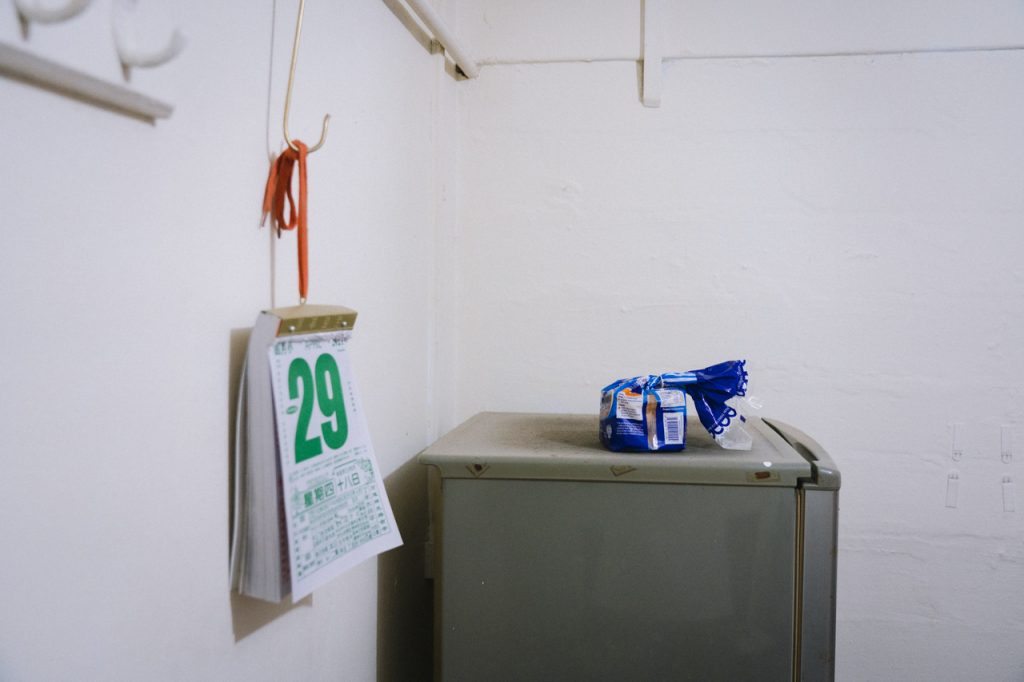
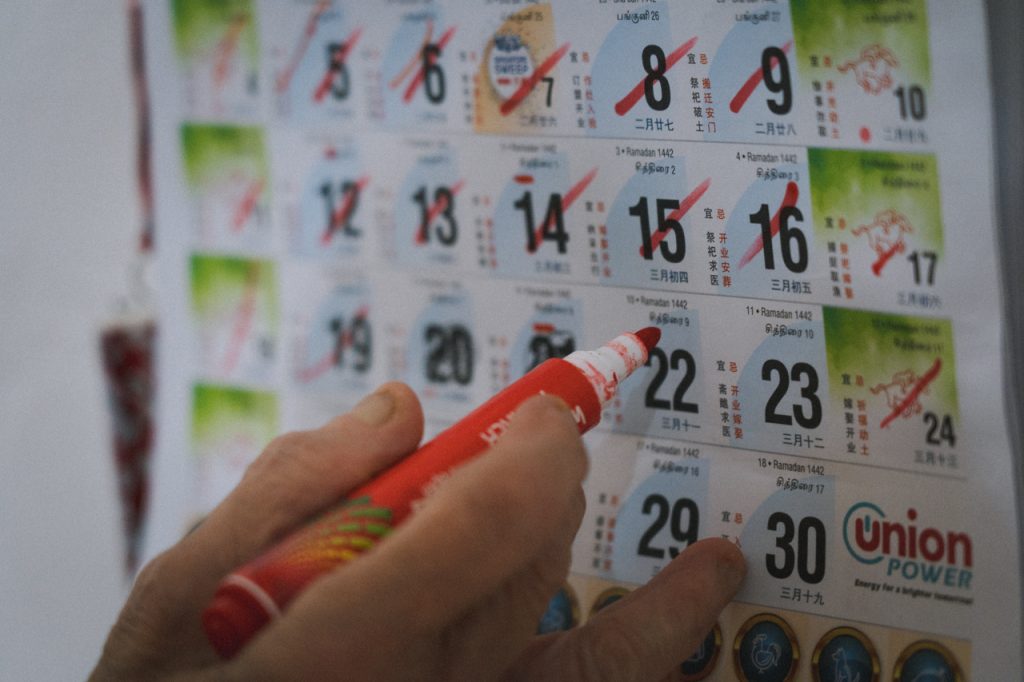
85-year-old Lee Siow Kiow resides with her twin sister just a block away from Aisyah. Widowed and childless, she is a small, sprightly woman who switches between multiple Chinese dialects with ease. But beneath her cheerful exterior lies a story of extraordinary hardship and suffering.
“If you were born a girl in those days, you were not considered a human,” she said in Hokkien.
“Everything that my parents had, they gave to my brother. And I was barred from attending secondary school. They thought that it was good enough that I knew how to write my own name.”
As a result, she spent her entire life working in menial jobs and was looked down on—and even abused—by younger coworkers. But nothing fazed her until the day she broke her hip two years ago.
“The day I had to stop working was the day I cried,” said Siow Kiow, who now shares the SGD$500 she receives every month from the Ministry of Social and Family Development (MSF) with her sister.
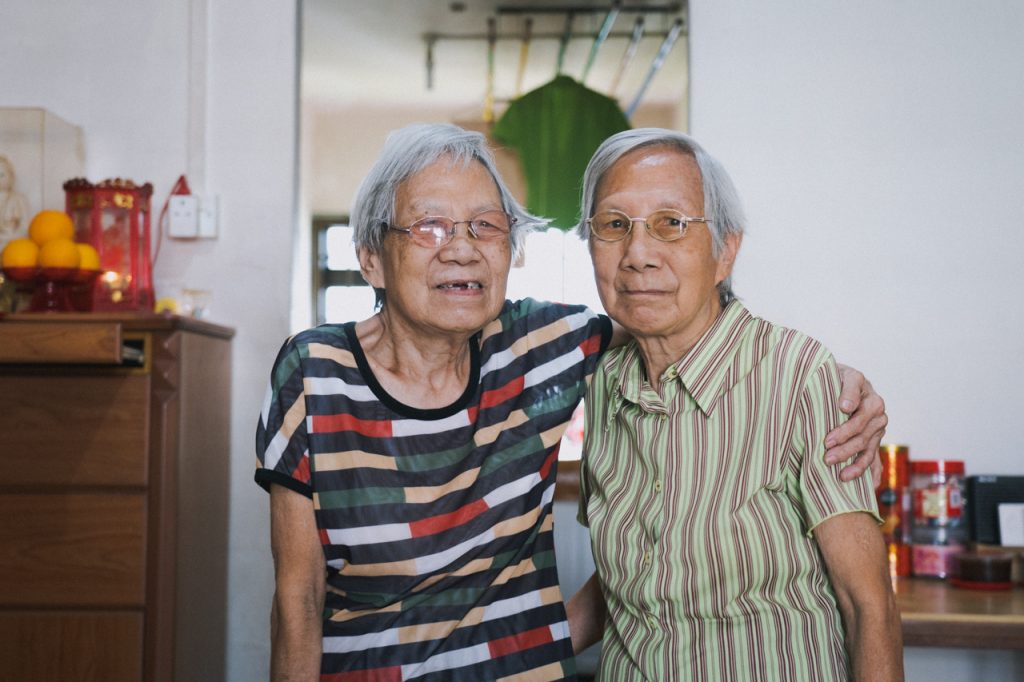
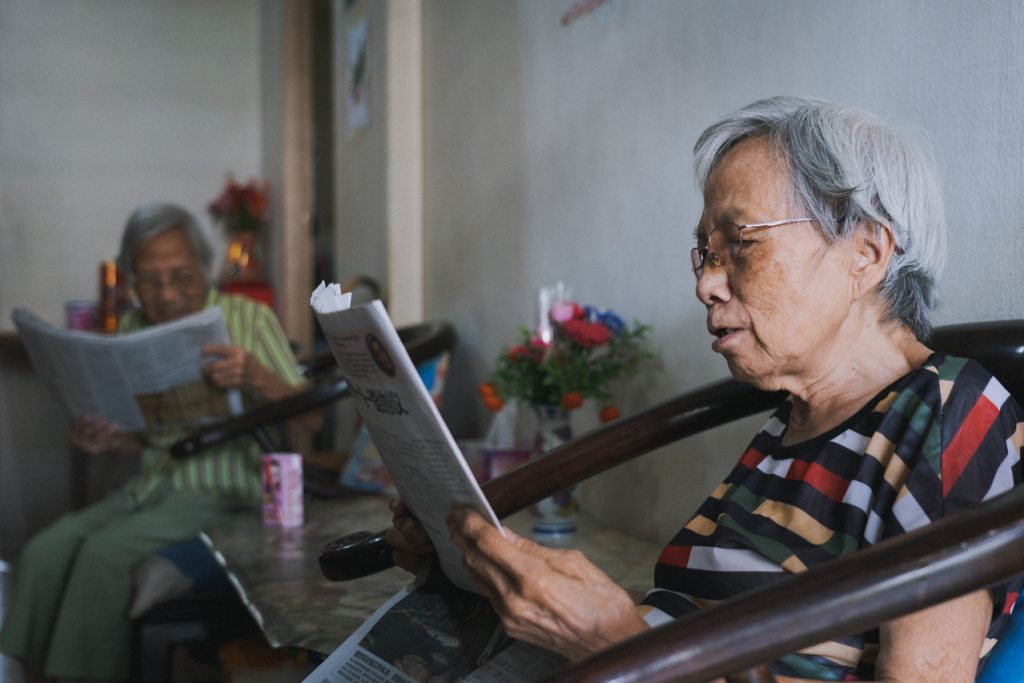
While the world has made great strides in gender equality, there is still a long way to go. It is reported that older women tend to be left behind as countries push to close the gender gap in education. The UN states that “average levels of illiteracy are as high as 53% for women aged 65 or over compared 29% for men in Asia, and this impacts upon the lives of older women, preventing them from accessing health services, securing incomes and moving out of poverty.”
These three women, including Siow Kiow’s twin—who has been left partially deaf and destitute after rupturing her eardrums from a fall at work—are still paying the price for a lifetime of mistreatment. Not only have they run out of savings, neither Siow Kiow nor her sister have thought of claiming compensation for the injuries they sustained at work.
A culture of ‘learned helplessness’ is common for women in their generation—the whole system has been rigged against them for so long that they eventually stop trying to improve their circumstances.
There are, of course, many organisations aimed at improving their welfare in Singapore.
Caregivers from government funded Lion’s Befriender’s Caring Assistance from Neighbours (CAN), for instance, provide assistance and support to vulnerable seniors, while the volunteers of Red Cross’s ElderAid conduct social calls and recreational wellness activities for seniors living alone.
But oftentimes, volunteers themselves have full-time jobs and aren’t always able to be consistent with their efforts. Those who have dedicated their lives to helping these women are also overwhelmed with the sheer amount of work.
“Many individuals and organisations do it for pictures,” said full-time volunteer worker, Adalena Koh. “They come around distributing food, but no actual help is given, especially during Covid. They don’t realise that these people need more than food—they’re deprived of other things, like basic hygiene.”
For the past 11 years, the 48-year-old has been routinely visiting low-cost HDB blocks in Toa Payoh in order to dole out food and friendship to its senior residents. This single mother also runs a self-funded women’s shelter, selling probiotics and health supplements to get by.
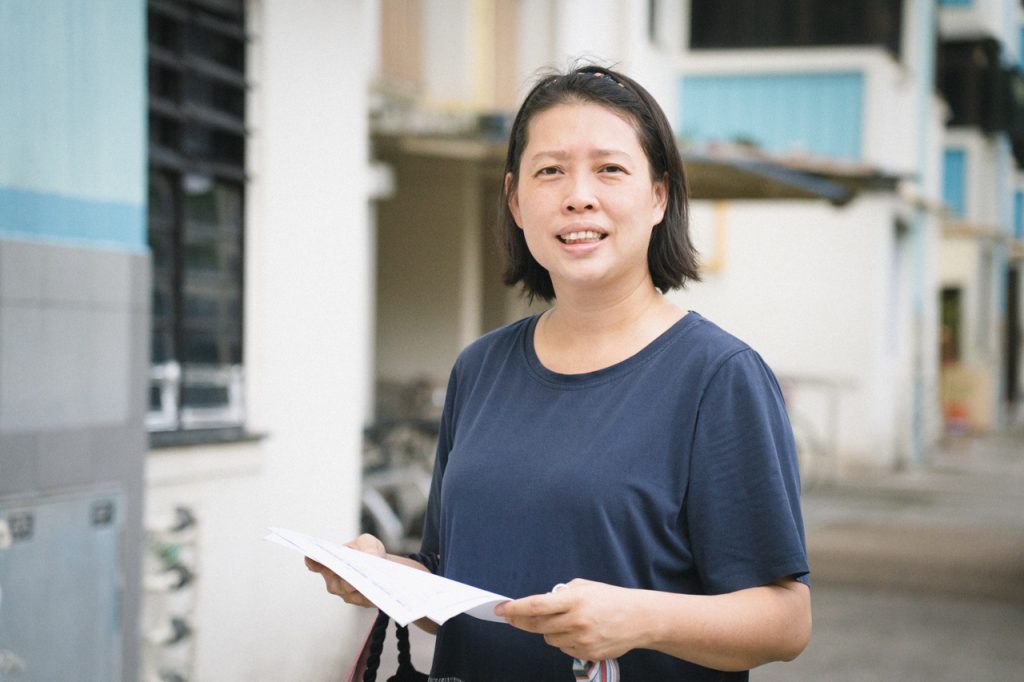
“I had autoimmune disease back in 2007, and had to sell my house and move into one of these blocks with my daughters and mom to pay my medical bills,” she said. It was then that an epiphany struck: “I saw how difficult the lives of these women are.”
She began helping the elderly women—and men—in her neighbourhood soon after recovering, even starting a hair-cutting and feet-washing ministry. Throughout the course of her work, she forged plenty of friendships, from elderly women with cancer who are living alone, to female septuagenarians abused by their own relatives.
“It’s difficult not to develop an emotional attachment to these people,” said Adalena, adding that there were moments when she felt like giving up. “I’ve noticed that elderly women are doing poorer in terms of health, but also more resilient, compared to the men.”
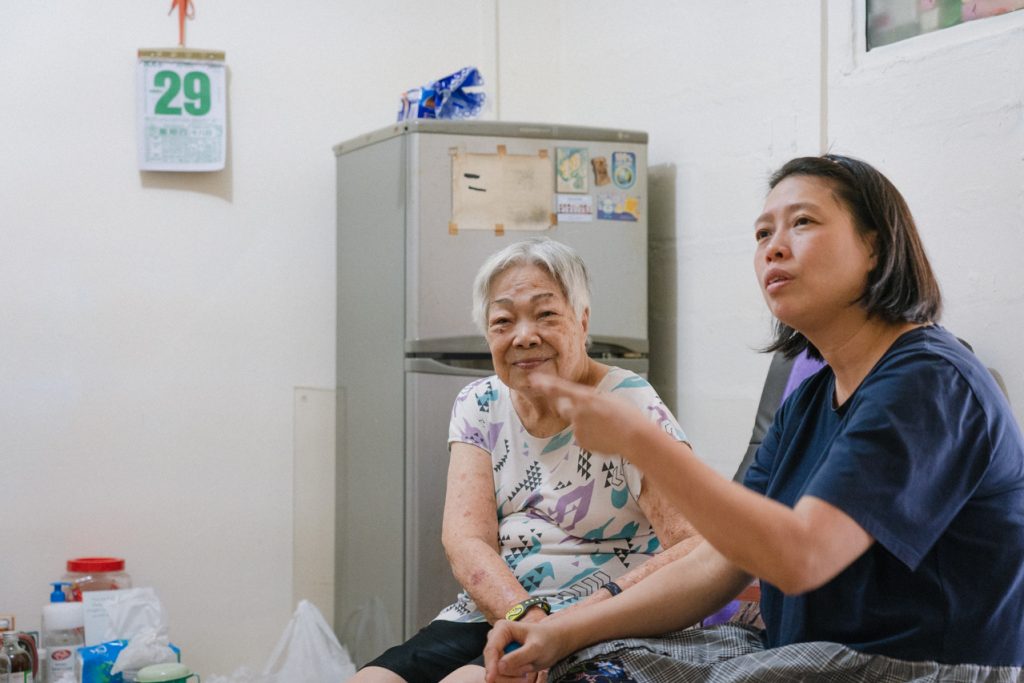
As Singapore’s population continues to age, such stories will become increasingly common. And addressing these challenges won’t be a quick fix—paying a higher GST is just one necessary trade-off that we have to make. Another might be to bring in more migrant labour, like what the Japanese are doing.
Shailey also suggested introducing a comprehensive anti-discrimination law in the workplace.
“As it is, the labour force participation rate of women over the age of 65 is 20.2% compared to 38.7% for men in Singapore,” said Shailey. “The government should provide legal remedies for workers experiencing discrimination, and address discrimination on the grounds of gender, race and other identities as well.”
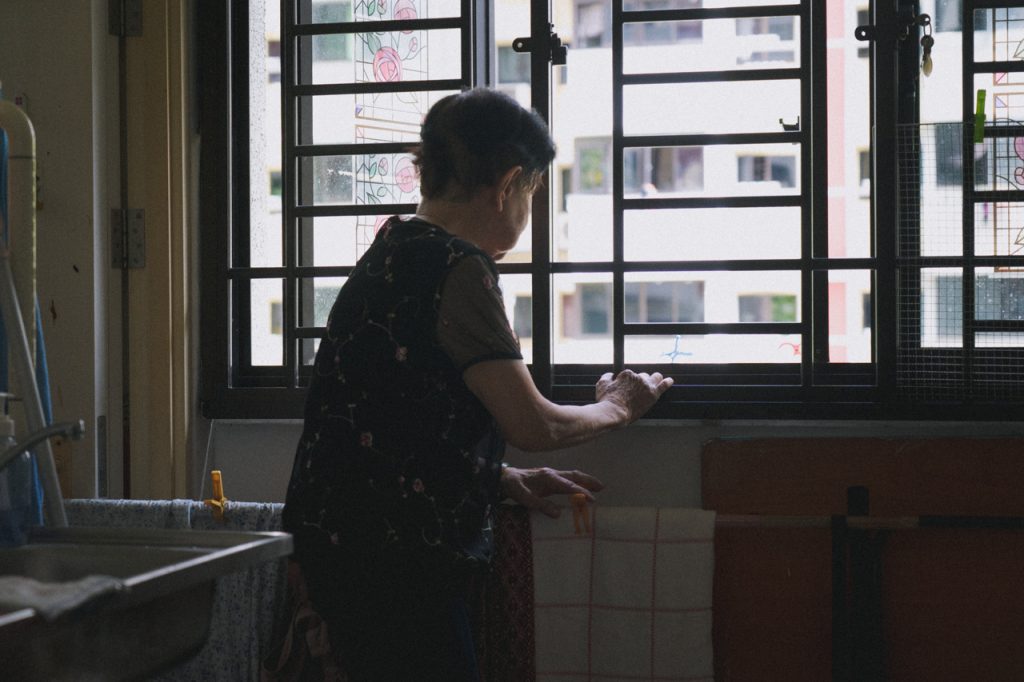
Back in Bishan, Lilian thumbed through a scrapbook she had made in a support group for caregivers. On the top left hand corner of the cover was a handwritten quote by Michelle Obama: There is no limit to what we, as women, can accomplish.
“I’m glad that I was born a woman,” Lilian said. “Otherwise, I would not have known the value of hardship and have everything handed to me on a silver platter—just like my brothers. I wouldn’t be the person I am today.”
Not five minutes later however, a gloom fell over her.
“I’m happy as long as I’m healthy. I don’t want to think about what would happen otherwise.”
Have something to say about this story? Write to us at community@ricemedia.co.

